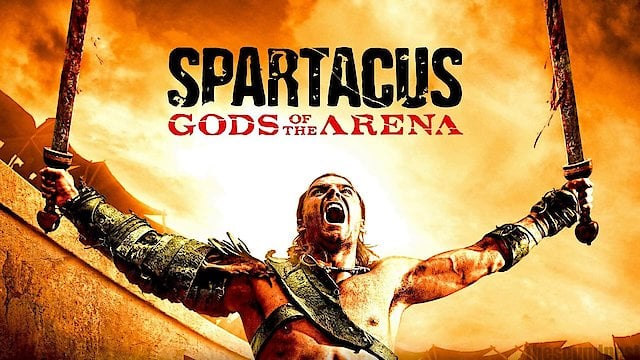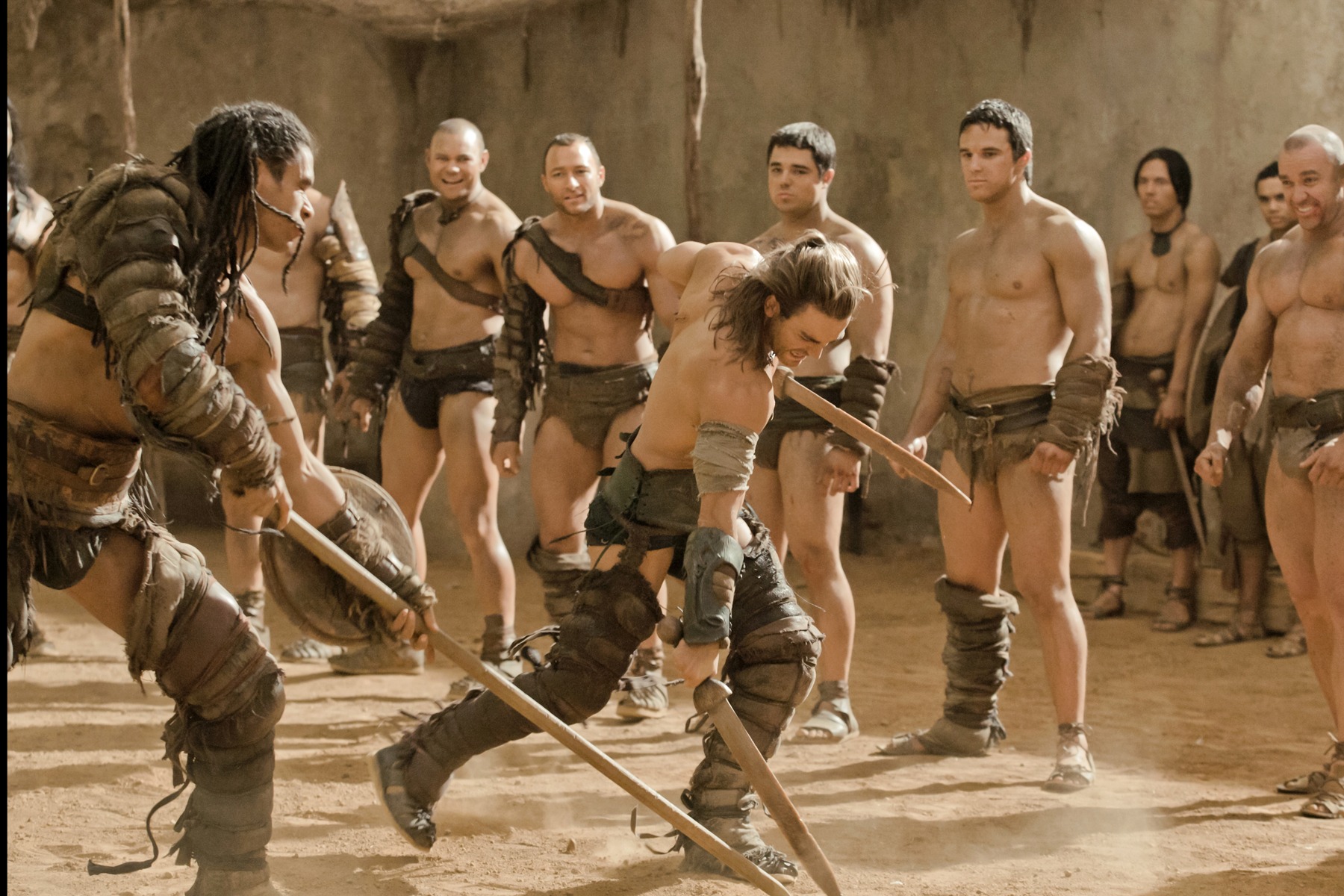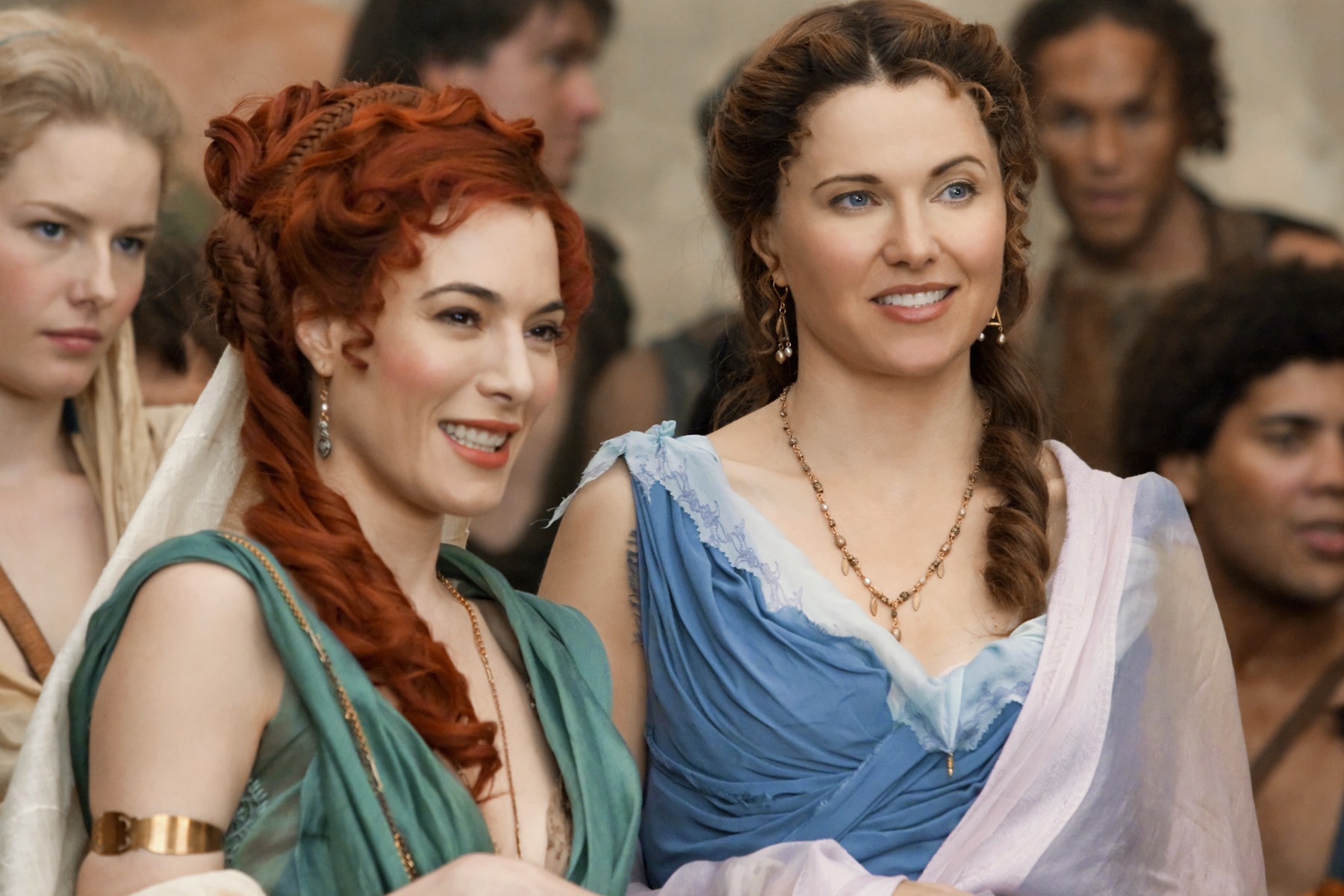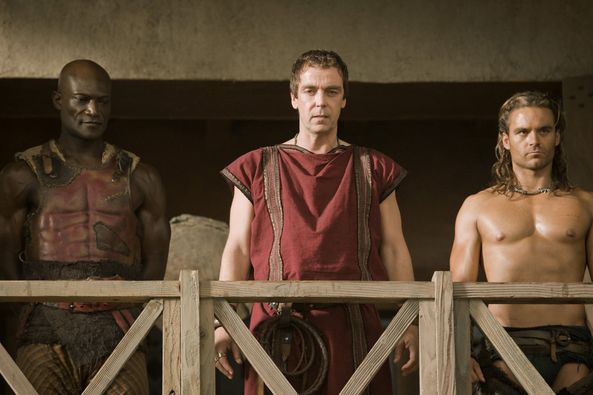Spartacus: Gods of the Arena (2011)

Spartacus: Gods of the Arena (2011) is a captivating historical drama miniseries that serves as a prequel to the popular show Spartacus. Airing on Starz, the series takes viewers back to the gladiatorial arena of ancient Rome, where blood, power, and betrayal rule the lives of both slaves and free men. Unlike the original Spartacus series, Gods of the Arena focuses on the rise of Gannicus, the first gladiator to become the champion of Capua, and the brutal world he must navigate in order to survive.
The story is set before Spartacus enters the arena and explores the lives of gladiators, the corruption of their masters, and the deadly politics of Roman society. At the heart of the miniseries is the character of Gannicus (played by Dustin Clare), a skilled and charismatic fighter who becomes the star gladiator of the ludus owned by Lentulus Batiatus (John Hannah). The show examines Gannicus’ journey from a young, eager fighter to a seasoned champion, while also delving into the complex relationships between the gladiators, their trainers, and their masters.
One of the most compelling aspects of Gods of the Arena is its portrayal of Gannicus, who is both a hero and an anti-hero. As a gladiator, he is caught between loyalty to his fellow fighters and the desire for freedom. Gannicus’ strength and charisma make him a natural leader, but his journey is far from straightforward, as he deals with betrayal, romance, and the dark side of fame in the arena. His character development adds emotional depth to the story, making him more than just a skilled fighter—he is a man torn between his honor and his survival.
The show also focuses heavily on the political intrigue surrounding Batiatus and his wife, Lucretia (Lucy Lawless). The couple is involved in manipulative schemes, both to maintain their control over the ludus and to secure power in Capua. The deceitful and power-hungry nature of their relationship adds a layer of tension and unpredictability to the story, as their actions directly impact the lives of the gladiators, especially Gannicus.

The miniseries is also notable for its intense action sequences and dramatic violence. Like its predecessor, Spartacus, Gods of the Arena does not shy away from showing the brutality of the gladiatorial games, with bloody battles and gory combat scenes. These moments are not just about spectacle but also serve to highlight the gladiators’ struggle for survival and their yearning for freedom in a world that sees them as mere entertainment.

Visually, the series is striking, with a dark, gritty atmosphere that perfectly matches the harsh realities of ancient Rome. The sets, costumes, and cinematography create a vivid, immersive world that feels both historical and mythical. The show’s bold style and graphic violence, however, are not for everyone, but for fans of intense dramas, it offers a thrilling and unapologetically raw experience.

In conclusion, Spartacus: Gods of the Arena is a thrilling and intense prequel that deepens the world of Spartacus and sets the stage for the epic events to come. The series successfully explores themes of power, betrayal, and survival, all while offering a complex portrait of Gannicus and the people around him. With strong performances, gripping storylines, and unforgettable action, the show is a must-watch for fans of historical dramas with a mix of romance, political intrigue, and brutal combat.











